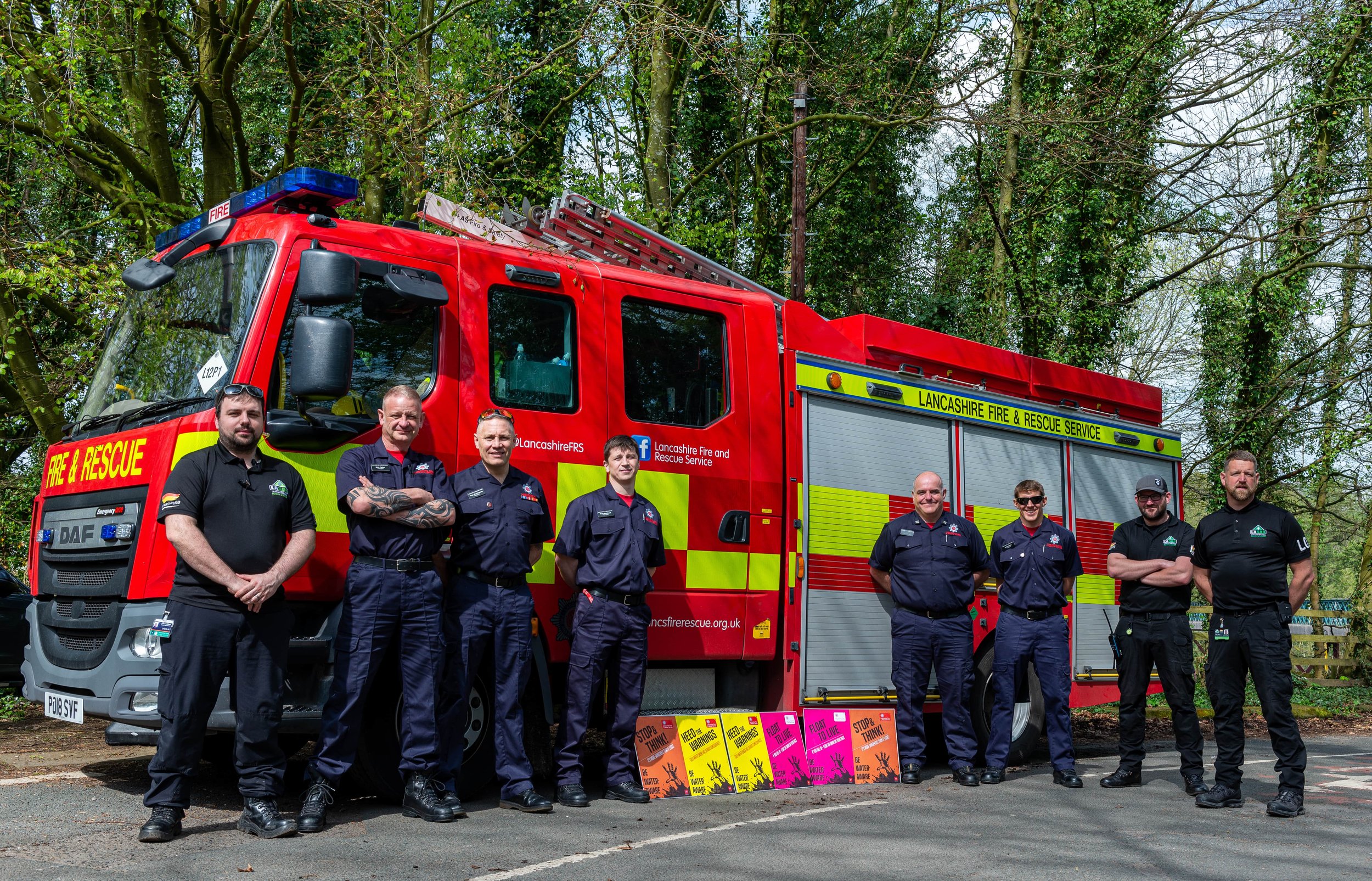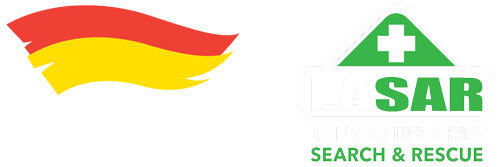
rescue team roles
Within our Rescue Team, our volunteers are able to train to fit a number of different roles, each of which has a specific skill set which is used during deployments. From Team Leaders and Medics, to Boat Helms, Rescue Technicians and Support Crew, there’s a position for everyone, regardless of skills or experience. All our training is provided by and moderated by Surf Life Saving GB which gives our crews internationally recognised qualifications and the confidence to operate safely and effectively in the field.
team leader
Our Team Leaders are Swift Water Rescue Technicians with additional SLSGB qualifications which enables them to take command during a call out. The role of a Team Leader is to manage our team, and our response on live incidents, working from within the emergency services incident command. Our volunteers may become Team Leaders after gaining the relevant experience, working up through the ranks from Rescue Support, up to the level of Rescue Technician. Team Leaders can be identified on deployments by their distinctive white helmet. On a deployment, it’s typical to see just the one Team Leader who manages several teams or patrols.
Inshore rescue boat crew
Inshore Rescue Boat (IRB) Teams consist of boat crew members and a Boat Helm. Our IRB Crew are Swift Water Rescue Technicians with additional training which allows them to operate on a boat in the water on incidents and patrols. In order to become a Helm, our volunteers must first pass the requirements to become IRB Crew. From here, Probationary IRB Helms must accrue several hours of helm time and training before completing an advanced level course which grants them the role of IRB Helm. Both our IRB Helms and IRB Crews can be deployed nationally as a part of any SLSGB Flood Rescue Team in the UK. In order to become IRB Crew, our Swift Water Rescue Technicians must complete additional fitness tests and training to ensure they can operate safely from within the boat and can act appropriately in the event of a capsize, as well as in other emergency scenarios. All IRB Crew must have an intricate knowledge of our boats, their engines and their equipment.
Medic
All of our Rescue Technicians and Rescue Support crew hold an SLSGB First Responder qualification, which allows them to provide an advanced level of medical and trauma care on incidents and patrols. In addition to this, our team has a number of qualified Medics who will take command of a team during a medical incident. Our Medics carry advanced equipment which can be used to prolong life during emergency situations. Our Medics operate under a scope of practice set by SLSGB, which clearly states what our Medics are qualified to do during an incident. Our Medics are advised by our own Clinical Team which is made up of Nurses, Paramedics and Emergency Medical Technicians who work for the NHS, North West Ambulance Service and other Private Ambulance services. For the whole team, medical training makes up a large part of our training syllabus.
swift water rescue technician
Our Swift Water Rescue Technicians (SRTs) are highly trained individuals who are able to operate in and around swift water. Our SRTs can operate both locally and nationally as a part of the SLSGB Flood Response Service. SRTs are trained to the DEFRA Level 3 Swift Water Rescue Technician standard which is considered to be the Gold Standard in SRT training across the emergency services. Our SRTs must demonstrate a high level of fitness, confidence in water, an ability to work effectively under pressure and an ability to carry out a range of technical rescue skills, from rope rigging and throw line rescues, to live bait rescues and casualty extractions. The SRT level is a stepping stone to more senior positions within our crew, including Boat Helm and Team Leader. In order to maintain their position as an SRT, our volunteers must complete a full requalification every three years, as well as the completion of 6-monthly competency checks. SRTs can be identified by their red helmet.
rescue support crew
Whilst training to become a qualified Swift Water Rescue Technician, our Rescue Support Crew are trained to DEFRA Level 2 standard, which allows them to respond to incidents and to join deployments, alongside our SRTs. Our Rescue Support crew complete training in water rescue, use of ropes in rescue, medical training and terrestrial search & rescue. Our Rescue Support volunteers complete a training syllabus that has been designed to get them ready to become Level 3 SRTs by completing 4 day training course during which their skills are assessed by instructors from SLSGB. Rescue Support Crew members are able to get involved in a range of local deployments but are not able to deploy to national incidents until they have completed their SRT training. Many members of our team only wish to progress to the level of Rescue Support Crew as here they are still able to provide an incredible level of service to our team and to our local community. In order to be deployed on incidents and patrols, our Probationary Crew must pass their initial training to become a Rescue Support Crew member where they can take on additional, advanced level training. Our Rescue Support Crew members can be identified by their yellow helmet. Rescue Support Crew members are issued with additional uniform, first aid kits and personal protective equipment, such as a Drysuit.
probationary crew
Upon a successful application to join our Rescue Team and passing our fitness test, Probationary Crew are invited to train with our team and are asked to complete a probation period of around 6 months. Assuming the Probationary Crew Member passes the required training, they will then be invited to join our on-call register and will become part of the Rescue Support Crew. As a Probationer, volunteers will get involved in initial basic training which covers all aspects of our service from first aid and casualty care, to operating around water and basic rescue techniques. All Probationers complete the DEFRA Level 1 Flood Water Awareness course which gives them basic knowledge of the principles of operating around water, as well as basic hydrology and information on why flooding happens. Probationers are also invited to attend community events and to get involved in the wider aspects of the charity. Probationers are issued with basic personal protective equipment, including a personal floatation device (PFD), a yellow helmet and some LASAR branded uniform. Whilst we expect the initial training stage to last between 8 - 10 months, those who commit to the training may complete their probation period sooner, depending on how quickly they are able to demonstrate the required competencies to join the Rescue Support Crew.
